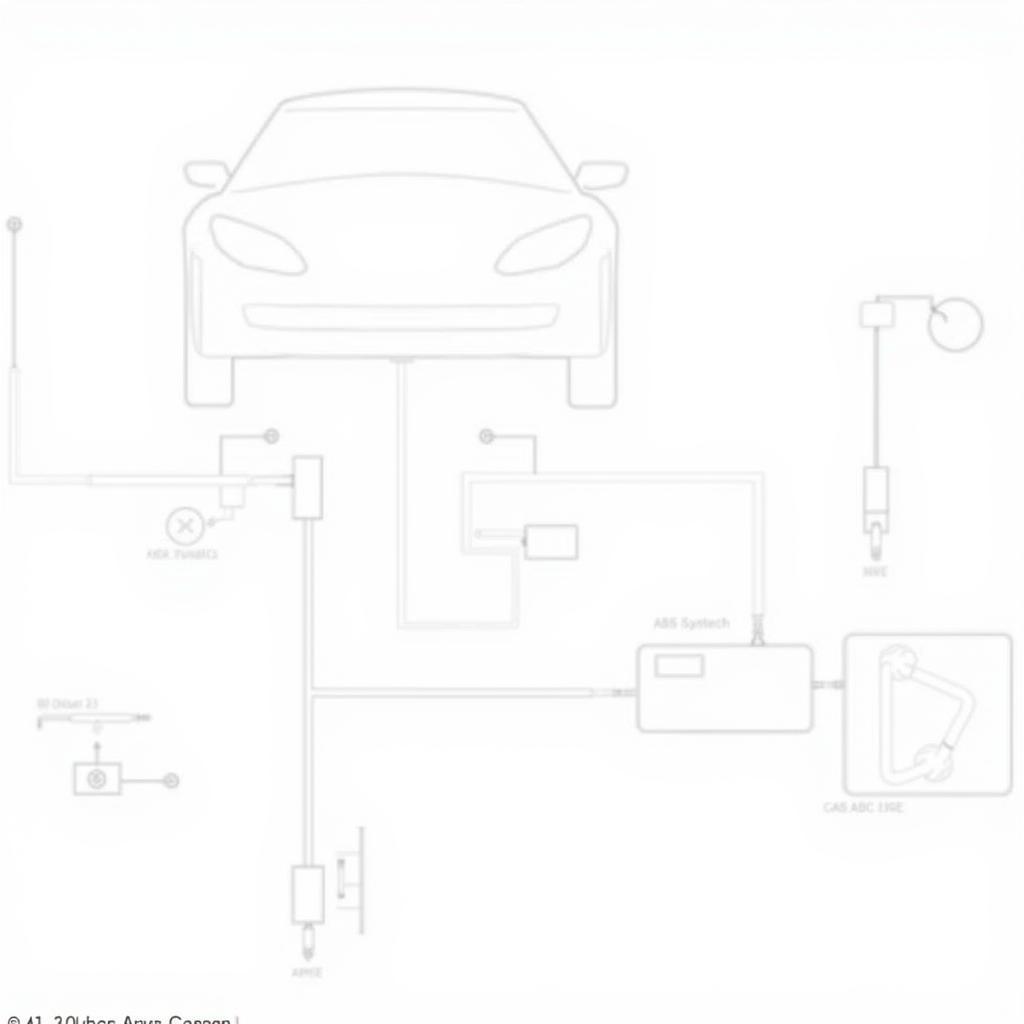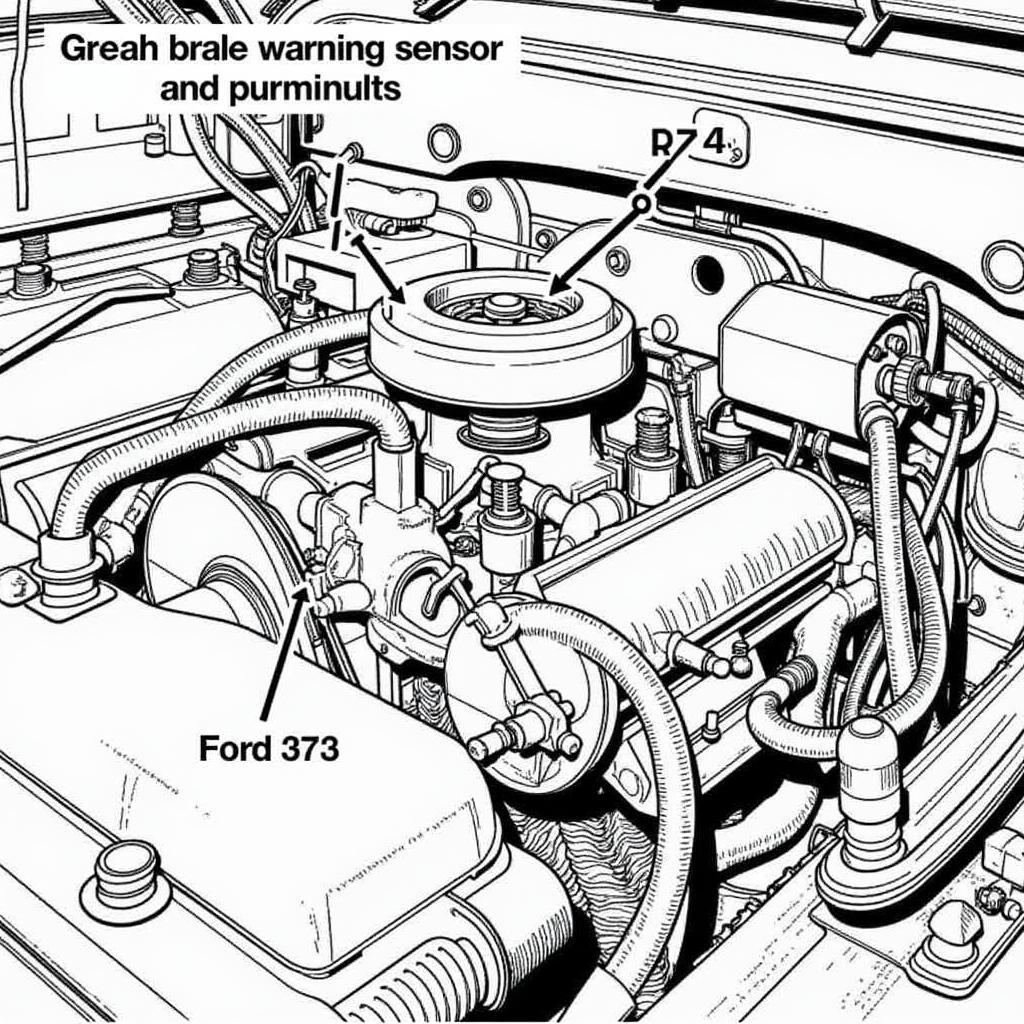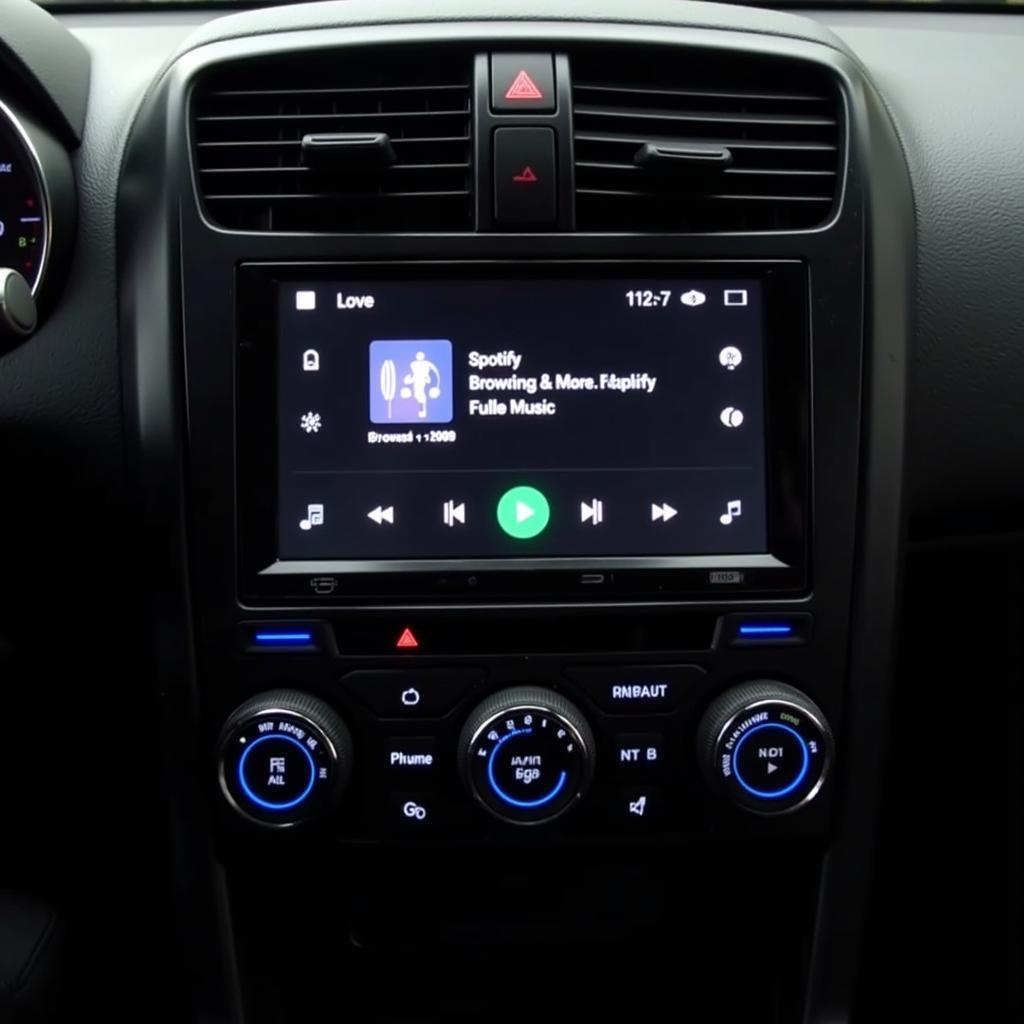The 2001 Toyota Camry brake warning light can be a frustrating issue, signaling potential problems with your braking system. This article dives deep into the causes, diagnostics, and solutions for a 2001 Toyota Camry brake warning light, offering expert advice to help you understand and address this concern.
If your 2001 Toyota Camry’s brake warning light illuminates, it’s crucial to address the issue promptly. This light could indicate anything from a simple issue like low brake fluid to a more serious problem with the braking system itself. Understanding the potential causes can help you determine the severity and take appropriate action. Let’s explore the common reasons behind this warning light and how you can troubleshoot them.
Why is My 2001 Toyota Camry Brake Warning Light On?
Several factors can trigger the brake warning light in your 2001 Camry. One common reason is low brake fluid. The brake system operates hydraulically, relying on brake fluid to transmit pressure. A leak or worn brake pads can cause the fluid level to drop, activating the warning light.
Another possibility is a faulty parking brake switch. If this switch malfunctions, the system can incorrectly interpret the parking brake as engaged, illuminating the warning light even when it’s released. Additionally, a worn-out brake master cylinder can cause issues with pressure distribution, leading to the warning light. The master cylinder is a critical component that converts pedal pressure into hydraulic pressure for braking.
A problem with the ABS (Anti-lock Braking System) can also be a culprit. The ABS prevents wheel lockup during hard braking, and a malfunctioning sensor or module within the system can trigger the warning light.  2001 Toyota Camry ABS System
2001 Toyota Camry ABS System
Finally, worn brake pads themselves can activate the warning light. Many 2001 Camry models have a sensor that detects when the brake pads are nearing the end of their lifespan. When the pads reach a critical thickness, the sensor triggers the warning light.
Troubleshooting the Brake Warning Light in a 2001 Toyota Camry
Begin by checking the brake fluid level. Locate the brake fluid reservoir under the hood and ensure the fluid is within the recommended range. If it’s low, top it off with the correct type of brake fluid. However, consistently low fluid suggests a leak, requiring professional inspection. If you suspect a leak in the brake lines, check your brake lines for damage and consult a professional for repair. You may also find the articles on a jeep compass battery dead or a 2019 jeep compass battery positive negative helpful for other car related troubleshooting.
Next, check the parking brake. Ensure it’s fully disengaged. If the light persists despite releasing the parking brake, the switch may be faulty.
“Regular brake inspections are crucial,” advises automotive expert, John Miller, ASE Certified Master Technician. “Addressing issues early can prevent costly repairs and ensure optimal braking performance.” Inspecting your brakes regularly can help identify potential problems before they become serious.
If the fluid level and parking brake are fine, consider having the ABS system diagnosed. A diagnostic scan tool can retrieve error codes from the ABS module, pinpointing the specific issue.
How to Fix the Brake Warning Light Issue
The solution depends on the diagnosed problem. Low brake fluid might involve simply adding fluid or fixing a leak. A faulty parking brake switch or master cylinder will require replacement. ABS issues may involve sensor replacement, module repair, or other related fixes. Worn brake pads necessitate replacement.
“Don’t underestimate the importance of quality brake components,” adds Miller. “Investing in reliable parts ensures long-lasting performance and safety.” This also applies to issues like when my car isn’t starting and it’s not the battery, understanding the reasons for dead battery can be incredibly helpful. Or understanding the 2018 jeep compass battery positive negative can prevent future electrical issues.
Conclusion
The 2001 Toyota Camry brake warning light serves as a critical indicator of potential braking system issues. Addressing this light promptly through proper diagnosis and repair is crucial for ensuring your safety and preventing further damage. Remember to check the brake fluid, parking brake, and ABS system, and consult a qualified mechanic if the problem persists. Don’t ignore this vital warning – your safety depends on it.


